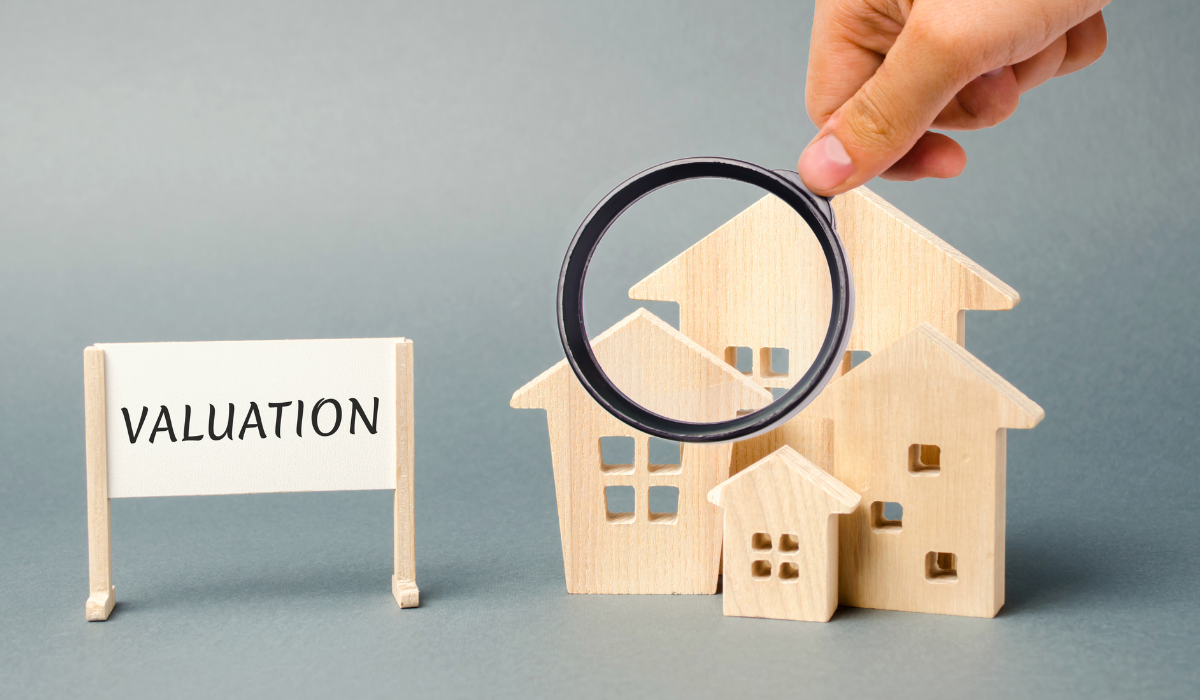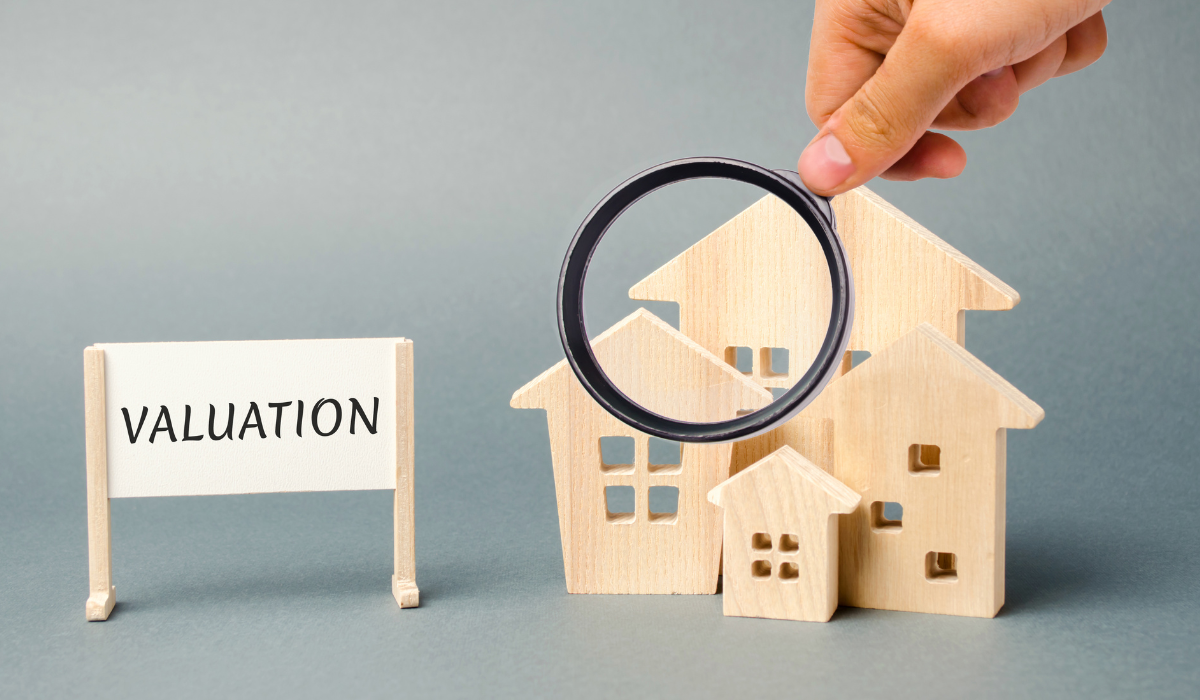Is Your Estate Worth What You Think? | Understanding Valuation
The Essential Elements That Influence Your Estate’s True Market Value.

Estate valuation is the detailed process of determining the fair market value of all assets held by an individual at a specific point in time, typically at the time of death or during estate planning.
These assets can include real estate, automobiles, jewelry, antiques, stocks, bonds, retirement accounts, and even business holdings.
The goal is to provide an accurate monetary representation of an estate’s total value.
Professional estate valuation services are crucial for navigating probate, calculating potential tax liabilities, or preparing for asset distribution among heirs.
Without a proper valuation, your financial planning may fall short, and the estate may face unexpected tax consequences or legal challenges.
Furthermore, estate valuation sets the foundation for effective wealth management, helping individuals and families make informed decisions about gifting, insurance coverage, and charitable contributions.
It’s about securing clarity and financial security for the future.
2. Common Misconceptions About Estate Value
One of the biggest pitfalls in estate planning is underestimating or misunderstanding the true value of your estate.
People often assume they can estimate their estate's worth based on market gossip, property tax assessments, or casual appraisals.
However, a certified estate valuation uncovers a much clearer and legally acceptable picture. A common myth is that real estate is the only significant asset.
In reality, collectibles, intellectual property, and retirement savings can add substantial value.
Another misconception is equating market value with estate value—yet estate valuation considers depreciation, historical purchases, liabilities, and current market dynamics.
Also, many assume you only need appraisals when selling property, which is false.
Certified valuations are vital for tax reporting, litigation, divorce proceedings, and trust formations.
Inaccurate assumptions can result in disputes, audits, or losses.
Recognizing these myths and engaging professional services ensures your estate is valued accurately, reducing risk and safeguarding your legacy.
3. When Do You Need Estate Valuation Services?
People often associate estate valuation only with death and probate, but estate valuation services are necessary in many other life situations.
For instance, when going through a divorce, it’s vital to understand the fair value of marital assets to ensure a fair division.
When gifting high-value items or money to children or charities, valuations help in reporting accurate values for gift taxes.
Retirement planning also requires precise knowledge of assets to make informed decisions. Insurance coverage reviews rely on current asset values to avoid being underinsured.
During estate planning, knowing your full asset value helps structure trusts and avoid overexposure to estate taxes.
Even during business succession planning, you need a valuation to decide on buy-sell agreements or partial transfers.
Essentially, anytime a financial decision depends on asset worth, valuation services provide the data you need to proceed confidently and in full legal compliance.
4. The Process of Certified Estate Valuation
The process of a certified estate valuation follows a meticulous and standardized approach.
It starts with an initial consultation to identify your goals—whether it's for probate, planning, or legal proceedings.
Then, a detailed asset inventory is conducted, documenting real estate, valuables, and financial instruments.
If needed, appraisers will visit your home or office to inspect physical items and real property.
They take notes on condition, location, and unique features.
Following this, the appraiser performs in-depth market research, analyzing recent sales of comparable items and considering depreciation or appreciation.
The final step is the delivery of a certified report, complete with asset breakdowns and legal documentation accepted by courts, banks, and the IRS.
This report ensures your estate valuation is defensible, transparent, and compliant with federal and state regulations.
Whether you're preparing for litigation or protecting your legacy, this thorough process ensures no asset is overlooked or misrepresented.
5. Who Can Perform a Certified Estate Valuation?
A
certified estate valuation must be conducted by a qualified professional with the proper credentials.
Not every appraiser meets the standards needed for legal or tax purposes.
Professionals with designations such as ASA (Accredited Senior Appraiser), ISA (International Society of Appraisers), or a CPA with estate valuation experience are preferred.
These individuals follow strict industry guidelines and are trained to evaluate everything from commercial property to fine art.
In court cases or IRS audits, uncertified valuations may be dismissed, putting your estate at risk.
A certified appraiser understands both the technical process and the legal implications of their findings.
They know how to write reports that will stand up to scrutiny from attorneys, judges, and tax officials.
When you’re dealing with a large estate, the margin for error is slim, and small mistakes can lead to major financial or legal consequences.
Choosing the right professional is just as critical as the valuation itself.
6. Real Estate Valuation: The Largest Estate Asset
In most estates, real estate is the single most valuable asset, often accounting for 50% or more of total estate value.
That’s why estate valuation services for real estate are detailed and multifaceted.
A proper appraisal considers the property’s square footage, age, condition, architectural features, and the surrounding market.
For example, a waterfront home or property in a top school district may command a significant premium.
Additionally, zoning restrictions, development potential, and historical preservation status can influence value.
If the property is rented, potential rental income adds another valuation layer.
In rural estates, land with agricultural value or mineral rights must also be evaluated. Valuing real estate is not a one-size-fits-all exercise.
Market trends, property comparables, and future projections all play a role.
With real estate forming the foundation of most estates, getting the value wrong could lead to family disputes, legal issues, or even tax penalties—making professional appraisal non-negotiable.
7. Valuing Business Interests in an Estate
If the deceased or planner owns a business, its value can dramatically affect the estate’s overall worth.
Whether it's a small family-run operation or shares in a large corporation, including business interests in a certified estate valuation is vital.
Business appraisals are complex and require financial forensics. Professionals evaluate financial statements, profit margins, assets, debts, customer contracts, goodwill, and market competition.
Three common approaches are used: the income approach (based on projected cash flow), the market approach (based on similar business sales), and the asset-based approach (based on total tangible and intangible assets).
If a business isn’t valued properly, it can lead to litigation among heirs, disputes with partners, or IRS penalties.
Estate planners often overlook minority ownership discounts or lack-of-marketability factors, which can significantly change a business’s fair market value.
Engaging a credentialed valuation expert ensures that your business interests are appropriately accounted for and legally defensible.
8. Estate Valuation and Tax Implications
One of the most important reasons to engage estate valuation services is to understand and manage tax obligations.
The federal government imposes estate taxes on estates exceeding the exemption threshold—$12.92 million per individual in 2025.
States may have additional tax rules. A precise valuation determines whether taxes are owed and how much.
Additionally, the valuation establishes a new cost basis for inherited assets, which is crucial for calculating future capital gains if the asset is sold.
If valuation is too low, the estate could underpay taxes and face penalties.
If too high, heirs might overpay. Furthermore, when charitable giving is involved, a proper valuation ensures that deductions are maximized and legally compliant.
IRS Form 706 requires extensive documentation, and any inconsistencies can trigger an audit. Estate tax planning should never be based on guesswork.
A certified appraiser ensures that your asset values are fair, up to date, and fully substantiated.
9. How to Prepare for a Certified Estate Valuation
Preparation can make or break the efficiency and accuracy of a certified estate valuation.
Start by organizing key documents, including property deeds, bank and brokerage statements, life insurance policies, business financials, and records of valuable personal property.
Create a comprehensive inventory of items, especially valuables like art, jewelry, antiques, or collectibles.
If possible, include receipts, past appraisals, or provenance documents that add credibility. Make sure assets are accessible—clean, well-lit, and secure for appraisers.
For businesses, provide up-to-date profit and loss statements, customer contracts, and ownership agreements.
The goal is to give your appraiser full transparency to minimize guesswork and maximize valuation accuracy.
Also, be prepared to answer questions about asset history, condition, or marketability.
This information can influence how the asset is valued and reported.
The more prepared you are, the smoother the process and the more credible your final report will be in legal or tax contexts.
10. Choosing the Right Estate Valuation Services Provider
Selecting the right professional for your estate valuation services is just as important as the process itself.
Look for providers with proven credentials like ASA or ISA certification.
Experience in your asset category—whether it’s real estate, fine art, or business interests—is crucial.
Transparency is also key. Ensure the provider offers a clear pricing structure, timeline, and service scope.
Ask for references or client testimonials. Read their reports (if samples are available) to assess thoroughness and legal credibility.
Make sure they’re familiar with IRS and state tax requirements if you're using the report for estate or gift tax filings.
A good certified estate valuation provider will also communicate clearly, educate you about the process, and guide you through potential pitfalls.
Don’t hesitate to interview multiple professionals and compare proposals.
Your estate’s value is too important to leave in uncertain hands. Partnering with the right expert brings peace of mind and long-term financial security.
FAQs
What is the difference between estate valuation services and a regular appraisal?
While both involve determining the value of assets, estate valuation services are more comprehensive and legally focused. They include a complete inventory of an individual's estate, conducted with the goal of meeting tax, probate, or estate planning requirements. Regular appraisals may only assess a single item (like a home or artwork) for general purposes such as refinancing or insurance.
Why do I need a certified estate valuation for probate?
Probate courts require accurate, documented asset values to ensure fair distribution of the estate and proper tax reporting. A certified estate valuation provides a legally recognized report that holds up under legal scrutiny. Without certification, your valuation may be rejected or contested, delaying the probate process and potentially leading to legal disputes.
How long does it take to complete an estate valuation?
The time frame depends on the complexity of the estate. A simple estate with a single home and a few bank accounts may take a few days to a week. However, a large estate with multiple properties, businesses, or collectibles may require several weeks. Estate valuation services often include on-site inspections and detailed financial research, which can impact turnaround time.
What qualifications should I look for in an estate valuation provider?
Always seek professionals with proper certification such as ASA (Accredited Senior Appraiser), ISA (International Society of Appraisers), or a CPA with estate valuation experience. These credentials ensure that the provider follows accepted industry standards for certified estate valuation and that their reports are valid for legal and tax purposes.
Can I use online tools to estimate my estate value?
While online tools can give you a basic idea of asset values—such as real estate estimators—they lack the accuracy and legal standing of professional estate valuation services. Only certified appraisers can provide reports that are accepted by the IRS, courts, and legal representatives. For critical financial planning, online estimates are not a substitute for a certified valuation.











